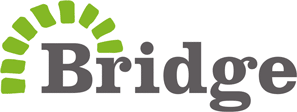UK Government report shows equity of learning at Bridge
17 October 2018
The UK Department for International Development (DFID) has published a report which shows full equality of learning in Bridge classrooms, regardless of a child’s socioeconomic background.
The new study, called ‘Learning in Lagos’, shows that factors such as parental income, education or language spoken at home had no effect on Bridge students’ academic performance in Lagos, Nigeria. But this was not the case in the other comparison schools. The report states: “In literacy, students from better socio-economic backgrounds have higher learning achievement in private and public schools, but not at Bridge schools.”
The DFID findings contradict decades of global education research trends that demonstrate family background matters more than the school a child attends, in relation to levels of learning.
The new study confirms the trend in other research that Bridge pupils are reaching higher attainment than their peers. Children in Bridge schools in Lagos do significantly better in literacy than their peers in other low fee schools or public schools. The report says that in literacy, “80% of students in Bridge schools perform above the sample average, compared to 62% of students in private schools and 18% in public schools.”
There are not enough government nursery and primary schools in Lagos to meet everyone’s needs, so, Bridge and others are helping to fill the gap in provision of quality education. Sixty-nine percent of children attending low cost schools in Lagos are living below the poverty line. Bridge and other school operators make an important contribution to the overall provision of quality schools in an area where tens of thousands of children are out of school.
Dr Steve Cantrell VP of Measurement and Evaluation at Bridge said: “There is no learning gap at Bridge schools. This is a big deal. This study validates our methods, which ensure that all teachers have high expectations for every pupil, irrespective of their families income, prior educational attainment, or which language they speak at home.”
Other highlights from the report’s findings include:
- A child’s family background has no impact on their attainment in class;
- In literacy Bridge pupils know more than their peers in other schools;
- The majority of children in Bridge schools are from poor families;
- Bridge teachers have the best relationships with their pupils; and,
- Bridge schools are managed more effectively than other types of schools.
A spokesperson for DFID Nigeria said: “DFID Nigeria welcomes the findings of the independent study that…show the need to build the regulatory capacity of government to support school management systems and processes that are necessary for improved learning outcomes in both public and private schools. We hope that this study will contribute to the growing body of evidence on the role of private sector provision of education in sub-Saharan Africa and similar context.”
Alina Lipcan, Education Consultant at Oxford Policy Management, and report author, said: “This is the first time we have measured school management in Nigeria. We are able to support a claim that all those working in organisations have long held true: good management matters. In Lagos public schools and Bridge schools, we find a strong correlation with better learning outcomes. As a next step, we would recommend more programmes focused on better management, so that more schools and pupils in Lagos can benefit.”
Olu Babalola, Managing Director of Nigeria for Bridge, said: “I think our pupils excel because our teacher training is so strong. Bridge teachers pay attention to struggling kids and not just kids and those doing well. I think in other schools, the tendency is for the smart kids to dominate in class because they are more likely to jump to answer a question. I believe that our cold-calling methods, the small group sessions, the check and respond methods and everything we coach the teachers to do ensures no child is left behind.”
Dr Steve Cantrell continued, “Bridge schools are places of equal opportunity and equal learning benefits for all types of children, and especially for the poor. Overall, this independent report shows that Bridge is helping children from poor families in Lagos to learn, improving access to quality education, and enabling the best overall learning attainment in the local communities we serve. We can now say with total confidence that Bridge makes a significant and important overall contribution to education opportunities in Lagos.”
The report marks an important milestone in the debate around Bridge’s role in helping poor families access quality education. The UK Government now recognises that, “the private sector, as well as the public sector, contributes to the education of Lagosian children and that DFID therefore needs to work with the private sector as well as the public sector to improve education outcomes for children in Lagos.”
It is surprising and unusual that children’s backgrounds did not influence their learning ability inside Bridge schools. The trend of international research has long found that a child’s background affects their academic performance in school. As the report says, “Students in private and public schools show statistically significant associations between parent education levels and literacy/numeracy scores. The same is not true of Bridge schools, where we do not find a strong relationship between parent education and student test scores.”
The report highlights the quality of Bridge teachers, saying: “Teachers in Bridge schools report higher motivation than teachers in other schools, and Bridge schools are better managed than other schools.” Teachers in Bridge schools empower their pupils and build strong supportive bonds. The report found that Bridge teachers were less likely to “hit, pinch, or slap” a child during a lesson (5%) than in private or public schools (both 31%).
Elsewhere in Nigeria, the Government of Edo State recently revealed a new programme called EdoBEST. It is a large scale government school improvement programme that is transforming education for 300,000 children. Bridge has been commissioned by the Edo Governor to be a technical delivery partner focused on improving the effectiveness of government teachers.
ENDS
Notes to editors:
Bridge has been running schools in Nigeria since 2015. The social entreprise runs affordable community schools in Lagos and Osun; is a delivery partner for the EdoBest programme in Edo and is part of an education PPP in Borno with the Nigerian Stock Exchange and Borno government.
The EDOREN study was authored by Oxford Policy Management and the University of Sussex and funded, commissioned and published by the UKAid, the UK DFID.
The study included over 100 schools including; 37 Bridge schools ; 38 public schools and 44 other low fee schools.
The study was conducted between 15th of January 2018 and the 4th February 2018, at the beginning of the second term of Primary 2 year.
Contact
Press Office
Bridge International Academies
media@oldbridge.mc-staging2.net
+44 (0) 20 3813 8236
About Bridge
Bridge believes every child has the right to high quality education and works in partnership with governments, communities, parents and teachers to ensure access to quality education. Bridge uses in-depth teacher training and support, advanced lesson plans and wireless technology to provide pupils with a meaningful and life-changing education.
Globally, there is an education crisis. Around 600 million children are either not in school at all, or in school and not learning. Bridge is committed to helping tackle this through a data driven, evidence based approach that delivers strong schools and a great education for all.





